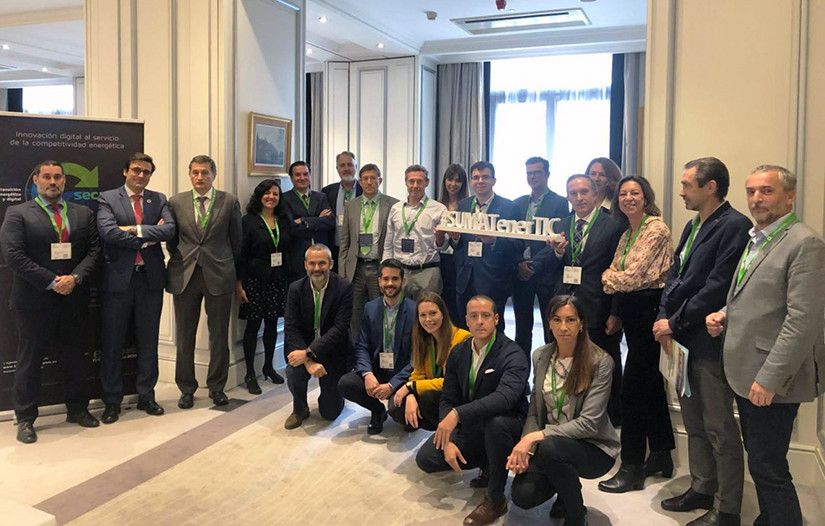The energy transition requires data analysis, interconnectivity of the value chain, and automation

At the most recent Breakfast Colloquium organized by enerTIC, entitled “The transition towards a new energy model: decarbonized, efficient, and sustainable”, the discussions were focused on the energy transition and digitalization. Executives from the energy sector shared information about some of the projects they are working on in relation to the goals of decarbonization, improved energy efficiency, and sustainability.
Almudena Nieto de Castro, GMV’s Head of Business Development for Energy and Utilities, participated in the colloquium to encourage application of technologies and digitalization in this key sector of the Spanish economy, in order to improve energy efficiency and sustainability.
The energy transition and technological revolution
The energy industry is currently facing a context marked by high energy prices, changes to commercialization models, and new European Union agreements intended to reduce electricity bills. The industry also needs to address long-term obligations on decarbonization of energy and reduction of carbon footprints.
Companies operating in this sector are now facing the energy transition (including both electrification and the push for renewable energies such as biogas and hydrogen), the technological revolution, and transformation of the companies involved. This requires flexibility and the ability to react quickly, while adopting the most appropriate technologies in order to understand the condition of their assets, infrastructure, and distribution grids; integrate renewables; and help users save energy.
The executives attending the breakfast meeting emphasized the following challenges:
- The existence of increasingly decentralized energy generation and the need to integrate prosumers into grids with the full guarantees required.
- Adaptation of the electricity market to new business models for renewables.
- The need to make progress with guarantees of origin (GOs), an aspect where Spain has now fallen behind compared to other countries.
- Regulatory restrictions, which can hinder innovation at regulated companies.
- A lack of specialized talent in fields related to IT and energy.
- The need to put consumers and users at the center of transformation projects, including those involving energy and digitalization.
- The lack of standardization, which makes market flexibility more difficult.
- Raising awareness among consumers about efficient habits and behaviors.
- Appropriate management of the resistance to change seen among employees and technology users.
Digital twins, IoT, AI, and process digitalization
The main innovations are related to predictive maintenance; data analysis and real-time data capture; and monitoring and control of assets, infrastructure, and networks. Professionals from the energy sector emphasize that investment is essential in all cases, and regulations must be adjusted to allow projects of this type to go forward.
In relation to technologies, there is special mention of digital twins, which can assist with modeling of various future scenarios and speed up implementation of initiatives in real contexts.
There is also discussion of visualizing low-voltage grids using artificial intelligence capabilities; digitalization of communications with customers and use of mobile apps; analyzing large volumes of data with big data approaches; and sensor-based projects using IoT and edge computing technologies to control dispersed installations.
Other subjects include mentions of artificial intelligence focused on predictive maintenance, process digitalization and automation, and use of virtual reality for remote training procedures. Attention is being given to collaborative robotics, for automating industrial processes and also in terms of caring for employees. The use of long-range drones is even being considered for monitoring overhead transmission grids, along with use of artificial intelligence for image analysis.
It is also essential to maintain a focus on cybersecurity, beginning at the time when each of these projects is being designed, in order to guarantee protection and allow recovery after potential attacks.